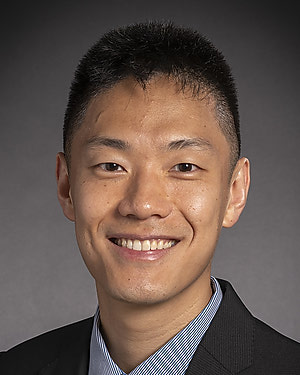Background
Risheng Xu, M.D., Ph.D., is a fellowship-trained neurosurgeon with expertise in cerebrovascular and endovascular neurosurgery, and skull base pathologies. He treats patients with a wide range of cerebrovascular disorders such as cerebral aneurysms, subarachnoid hemorrhage, arteriovenous malformations, arteriovenous fistulas, carotid stenosis, cavernous malformations and moyamoya disease. He also treats skull base tumors such as acoustic neuromas (vestibular schwannomas) and meningiomas, and pain disorders such as trigeminal neuralgia.
Dr. Xu completed his undergraduate studies at Harvard College, and attended medical school at the Johns Hopkins University School of Medicine, where he also obtained a Ph.D. in pharmacology and molecular sciences. He continued his residency training in neurosurgery at Johns Hopkins, and remained there to complete a fellowship in cerebrovascular and endovascular neurosurgery.
Dr. Xu has been active in research throughout his training and has authored and co-authored numerous published studies. His basic science research endeavors focus on neuroinflammation after ischemic stroke and molecular mechanisms underlying trigeminal neuralgia. He has authored or co-authored over 100 manuscripts, and has published in journals such as Nature, Nature Communications, Science Advances, Science Signaling, Neuron, the Proceedings of the National Academy of Sciences (PNAS), the Journal of Neurosurgery, Neurosurgery and other journals. Clinically, he studies the long-term outcomes of patients with cerebrovascular disorders and trigeminal neuralgia.


Patient Ratings & Comments
The Patient Rating score is an average of all responses to physician related questions on the national CG-CAHPS Medical Practice patient experience survey through Press Ganey. Responses are measured on a scale of 1 to 5, with 5 being the best score. Comments are also gathered from our CG-CAHPS Medical Practice Survey through Press Ganey and displayed in their entirety. Patients are de-identified for confidentiality and patient privacy.